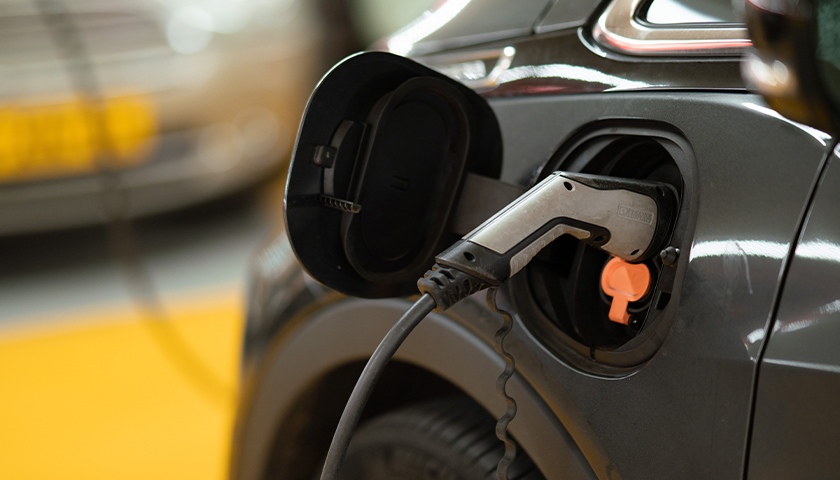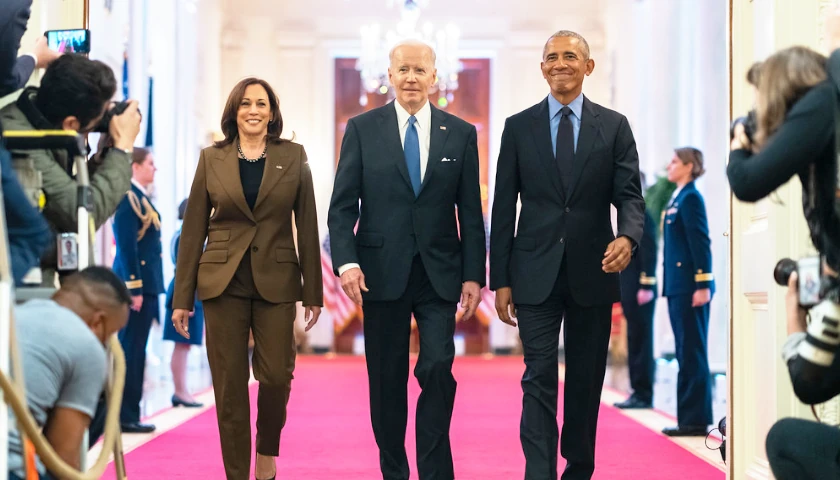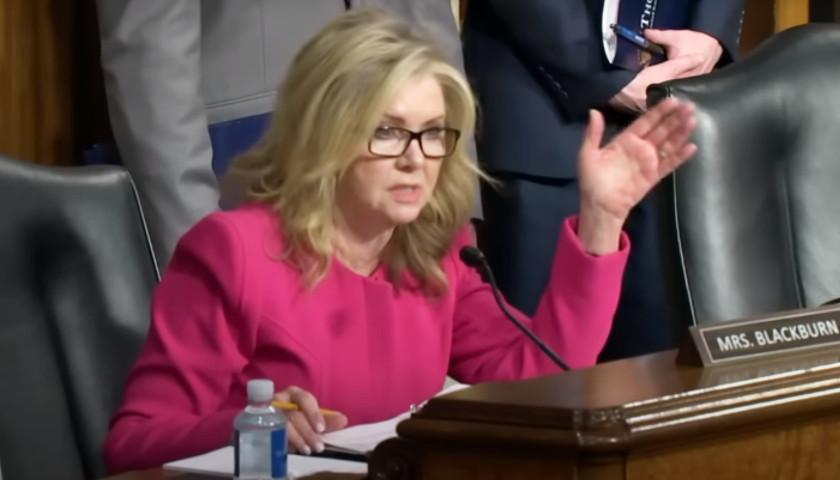Only 19 percent of Americans are interested in purchasing an electric vehicle, while Tennessee makes a massive investment in a Ford plant that will produce electric vehicle batteries.
The General Assembly in 2021 passed a law to spend $884 million to push the Ford deal through.
Ford will spend $5.6 billion on a plant in Haywood County to build electric vehicle batteries.
“Structural steel is erected less than one year after Ford and SK On announced their $5.6 billion investment to build a revolutionary all-new electric truck and advanced batteries for future Ford and Lincoln vehicles in West Tennessee,” Ford announced in September, providing an update on the job. “The nearly 6-square-mile mega campus will create approximately 6,000 new jobs when production begins in 2025.”
Gov. Bill Lee (R) celebrated the investment in March.
“Ford’s decision to bring BlueOval City to West Tennessee is a testament to our state’s skilled workforce and leading role in the future of American automotive manufacturing,” he said. “With the single largest investment in state history, this historic project brings thousands of jobs and new opportunities for Tennessee families to thrive. I thank the local leaders and legislators who made this day possible and look forward to BlueOval City’s long-term success in West Tennessee.”
But according to a report compiling data regarding Americans’ affinity, or lack thereof, for electric vehicles, Americans are not interested in going electric.
According to the report, only 19 percent of Americans say that they are very likely to purchase an electric vehicle, and 60% of Americans oppose the phasing out of building new gasoline-powered cars.
Citing a Pew Research Poll, the report noted that “almost 60% oppose ‘phasing out the production of new gasoline cars and trucks by 2035,’” and that “opposition has grown by 7 percentage points in just two years.”
Meanwhile, the Biden administration has given $9.2 billion to Ford for the production of electric vehicle batteries.
“A deep-pocketed US government program designed to finance futuristic energy businesses is issuing a conditional $9.2 billion loan to Ford Motor Co. for the construction of three battery factories,” Bloomberg reported in June. “The enormous loan — by far the biggest government backing for a US automaker since the bailouts in the 2009 financial crisis — marks a watershed moment for President Joe Biden’s aggressive industrial policy meant to help American manufacturers catch up to China in green technologies.”
– – –
Pete D’Abrosca is a reporter at The Tennessee Star and The Star News Network. Follow Pete on Twitter.






Another possible argument against electric automobiles is their reliance on the element of cobalt, over ninety percent of which comes from the Congo which uses child slave labor to extract most of this mineral at the bottom of the chain. The cobalt mines in the Congo have some mines the size of Metropolitan London filled with laborers who lost their farms and property to greedy multinational corporations who had brutal right wing dictators forcibly remove people from their homes to slave in these mines with no sanitation, little food, and little pay. The mines have turned hundreds of thousands of children into orphans when their parents died from horrible working conditions there. This part of the Congo that has these cobalt mines is from the former Katagna Province in which white racists and imperialists during the early 1960’s attempted to get to secede from the newly independent Congo. After torturing and murdering the Congo’s first elected leader, Patrice Lumumba, in 1961, Europeans installed an Idi Amin-like dictator named Mobuto who would run the Congo into the ground while allowing European multinationals to milk the country for all it was worth. These are the reasons to boycott electric cars until either the Congo cleans up its human rights act or, failing that, finding another location to produce resources for electric cars.
If it sounds too good to be true, then it is too good to be true.
Industry Sugar Daddy Lee and the lemmings who follow him in the state legislature really put it to the Tennessee taxpayers. I wonder what the odds of success for this plant (however success might be defined and redefined). I figure it is certainly well less than 50%.
if i am going to buy an EV i certainly dont want one from ford or GM.
toyota and honda would be the best bets, and they aren’t much into that market yet.
maybe when toyota gets solid state battery vehicles out.
Right, while at the same time environmentalists (who you would presume to want to drive electric cars) are doing all they can to limit the mining of the rare earth minerals in America that are required to manufacture those batteries. So, instead we’ll just purchase them from China, who has a terrible environmental record. Or better yet, we’ll source these rare earths from companies who use child labor to mine them in the Congo. We MUST STOP GLOBAL WARMING, and who gives a $hit if we have to use slave labor to do it, as long as it’s in some other country.
Lol. It’s more like 7 % of people want electric cars. Spinning the number up, WILL NOT sell the cars. Liars
I worried about the foregoing issues in a comment to the Tennessee Star dated 9-25-22 (I will not repeat that comment again here). Tennessee had a revenue surplus last year. But if our State continues to spend amounts like the $884M sum cited above in this story, and the Ford Motor Company project proves to be a ‘bust’ (either financially or environmentally, or God forbid, both), Tennessee could very quickly find itself in a financial ‘hole’ that it might have great difficulty ‘climbing out of’. And then, Tennesseans from Mountain City to Memphis, and everywhere else in between, would have to pay off this boondoggle. Sometimes debts are so enormous that it can require generations to repay them. And some damages to our State’s lands and water (such as environmental hazardous waste generated by such a project), can never be ‘cleaned up’ and repaired–such damages can remain forever.